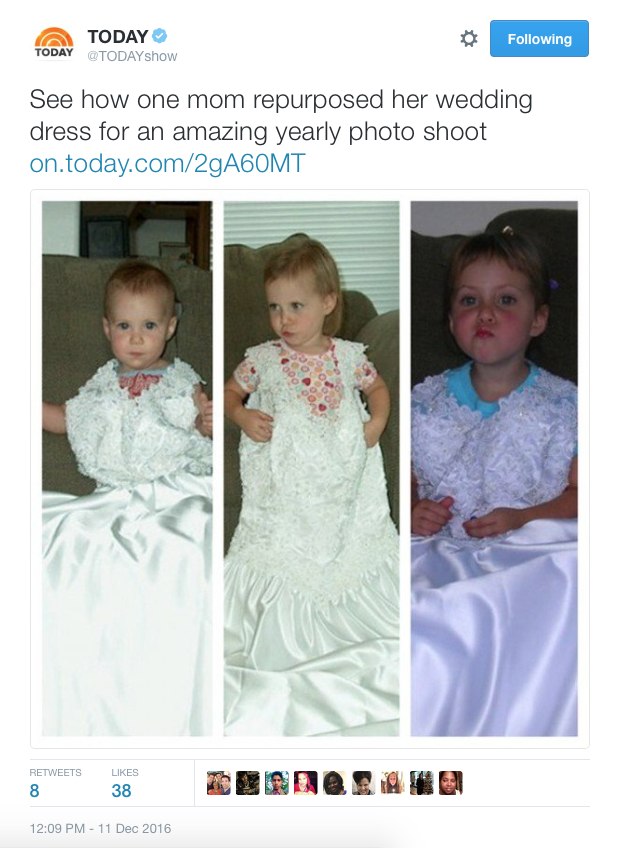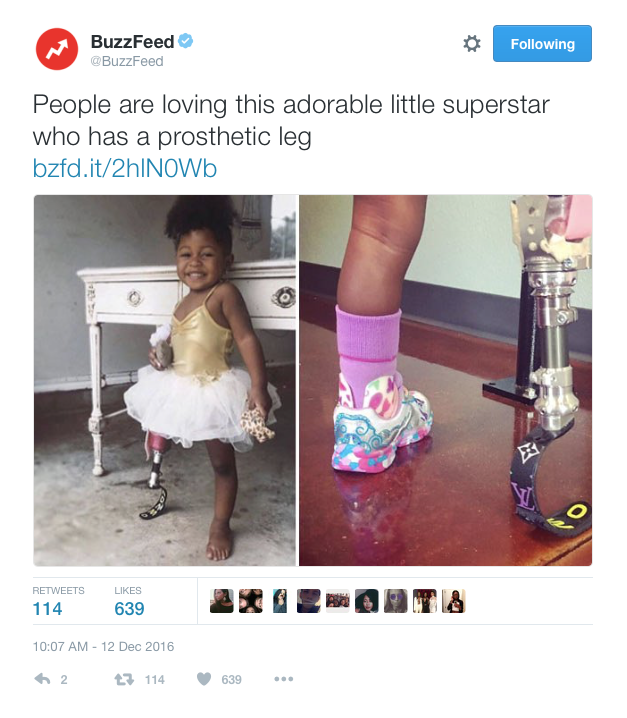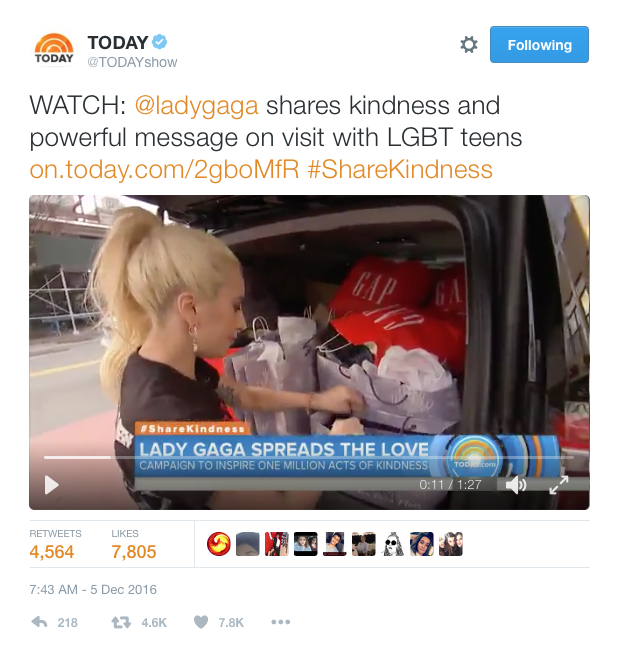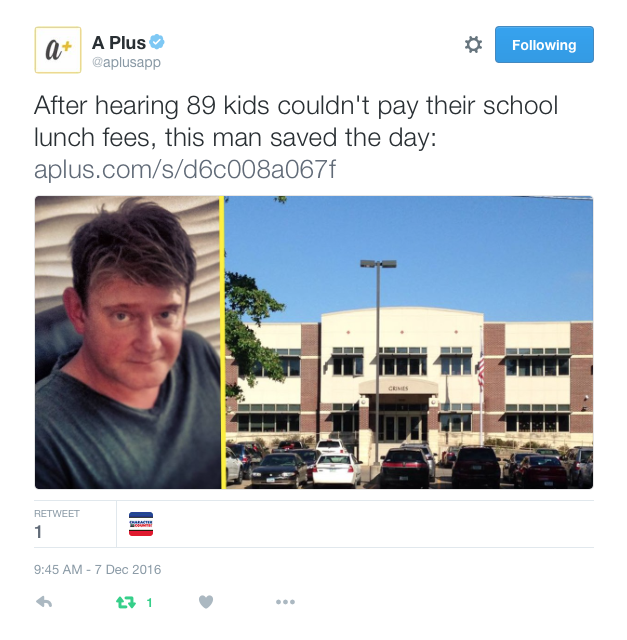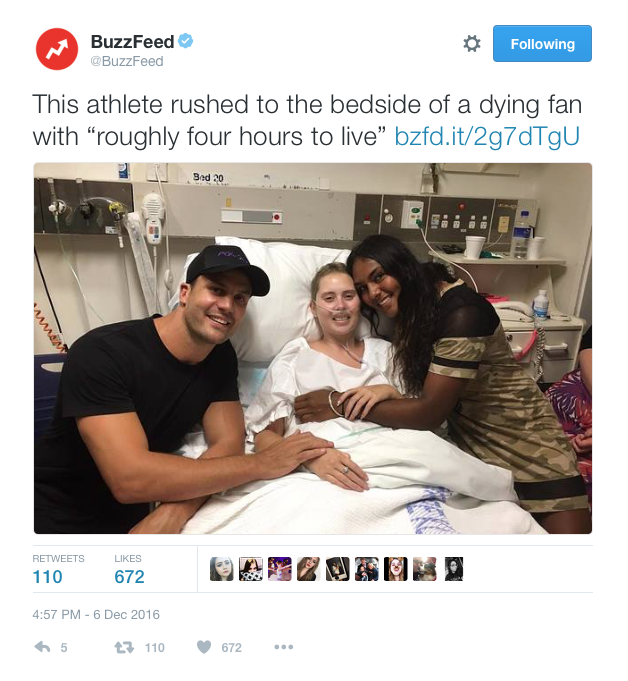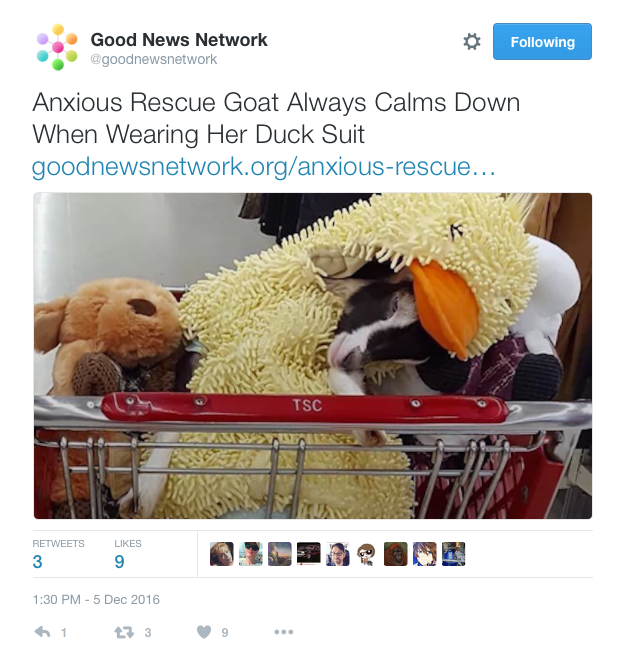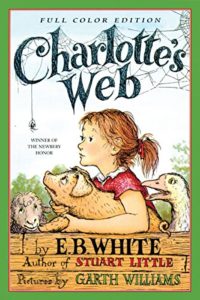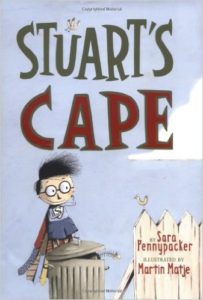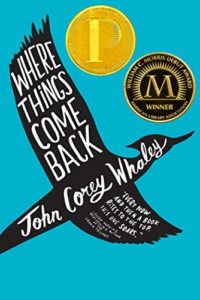The power to forgive

From our guest contributor, Frank Sonnenberg.
Forgiving doesn’t mean forgetting, nor does it mean approving, what someone did. It just means that you’re letting go of the anger toward that person.
There are several benefits to forgiveness. From a moral imperative, turning your cheek is the right thing to do. Period. Furthermore, it’s a lot healthier and takes a lot less energy to forgive someone than to hold a grudge and remain angry. The fact is, when you’re consumed by bitterness, resentment, and vengeance, you can get swallowed up by your anger. As Lewis B. Smedes, the renowned theologian, said, “To forgive is to set a prisoner free and discover that the prisoner was you.”
Forgiveness does not mean suppressing your feelings or pretending the anger doesn’t exist. Instead, forgiveness requires a conscious decision to release your resentment and thoughts of revenge. It also calls on you to acknowledge and practice the full range of emotions that you possess, such as grief and anger as well as kindness and compassion –– even toward someone who has hurt you deeply.
That’s tough, you say? It’s important to remind yourself that one of the main reasons to show forgiveness is to benefit yourself. Hate is a cancer on one’s soul. It can cause you to feel helpless and frustrated and trap you in a never-ending cycle of anger and resentment. And although you may have every reason to be bitter, you will be compounding the problem by keeping the issue alive. Think of it this way: While they hurt you once, now you’re doing it to yourself.
The truth is, forgiveness reduces the offender’s grip on you and helps you focus on other, positive areas of your life. So follow the wisdom of Robert Brault, the author, who said, “If you can’t forgive and forget, pick one.”
 Frank is an award-winning author. He has written six books and over 300 articles. Frank was recently named one of “America’s Top 100 Thought Leaders” and one of America’s Most Influential Small Business Experts. Frank has served on several boards and has consulted to some of the largest and most respected companies in the world. Additionally, FrankSonnenbergOnline was named among the “Best 21st Century Leadership Blogs” and among the “Top 100 Socially-Shared Leadership Blogs.” Frank’s newest book, BOOKSMART: Hundreds of real-world lessons for success and happiness, was released November, 2016 © 2016 Frank Sonnenberg. All rights reserved.
Frank is an award-winning author. He has written six books and over 300 articles. Frank was recently named one of “America’s Top 100 Thought Leaders” and one of America’s Most Influential Small Business Experts. Frank has served on several boards and has consulted to some of the largest and most respected companies in the world. Additionally, FrankSonnenbergOnline was named among the “Best 21st Century Leadership Blogs” and among the “Top 100 Socially-Shared Leadership Blogs.” Frank’s newest book, BOOKSMART: Hundreds of real-world lessons for success and happiness, was released November, 2016 © 2016 Frank Sonnenberg. All rights reserved.
Feeling stressed out?
If so, you’re not alone. We all feel stressed out at one time or another. It’s a natural reaction to what goes on in our lives, especially during this busy holiday season. Recent research on the subject of stress and happiness indicates that we can handle stress better, live longer, be more successful, suffer less burnout, be smarter and be more productive by just training our brains to choose happiness. In his book ‘Before Happiness’, Shawn Achor writes about some steps we can take to help train our brains to choose happiness. In addition to regular exercise and meditation he suggests the following:
- ‘Three Gratitudes’: each day for 21 days, write down three things that your grateful for
- Journaling: each day write about one positive experience from the past 24 hours
- ‘Random Acts of Kindness’: each day write one positive email, text or social media post praising or thanking someone in your social support network
- What positive experience, from the past 24 hours, could you write about to start training your brain to choose happiness?
Books to help teach friendship
With a variety of books to choose from, it can be overwhelming to find books to help teach character. Here’s a list of a few book suggestions to start conversations about creating friendships and the value of them.
The Loudest Roar by Thomas Taylor 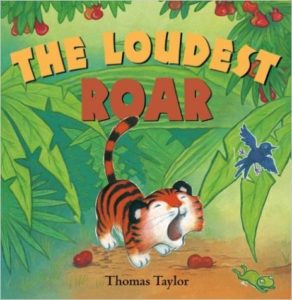
Best for: PreK
ISBN-10: 043950130X
ISBN-13: 978-0439501309
Clovis loves roaring and making a lot of noise! But the other animals are sick of being roared out of their peace and so they devise a strategy to show Clovis that it takes more than being the best to get along with others.
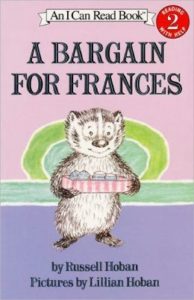
A Bargain for Frances by Russel & Lillian Hoban
Best for: Grades K – 2
ISBN-10: 006444001X
ISBN-13: 978-0064440011
Thelma always seems to get Frances into trouble. When she tricks Frances into buying her tea set, it’s the last straw. Can Frances show her that it’s better to lose a bargain than lose a friend? Follow Frances through the trials of friendship in A Bargain for Frances.
A Sick Day for Amos McGee by Philip C. Stead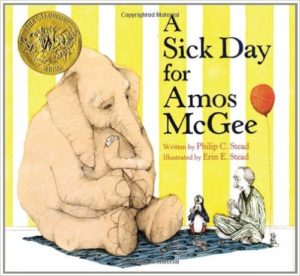
Best for: Grades K – 2
ISBN-10: 1596434023
ISBN-13: 978-1596434028
Friends come in all sorts of shapes and sizes. In Amos McGee’s case, all sorts of species, too! But when Amos is too sick to make it to the zoo, his animal friends decide it’s time they paid him a visit!
Charlotte’s Web by E. B. White
Best for: Grades 3 – 7
ISBN-10: 0064400557
ISBN-13: 978-0064400558
E. B. White’s Newbery Honor Book is a tender novel of friendship, family, and adventure that will continue to be enjoyed by generations to come.
Roses are Pink, Your Feet Really Stink by Diane DeGrout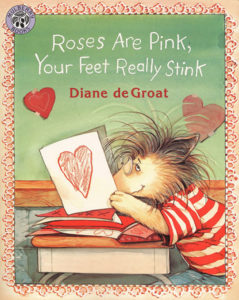
Best for: Grades 3 – 5
ISBN-10: 0688152201
ISBN-13: 978-0688152208
Gilbert has 15 blank Valentine cards just waiting for him to fill with nice Valentine poems for his classmates. But how can he write a nice poem for the boy who tweaked his nose or the girl who made fun of his glasses?
Stuart’s Cape by Sara Pennypacker
Best for: Grades 3 – 5
ISBN-10: 0439301807
ISBN-13: 978-0439301800
Stuart’s got problems. It’s raining. He’s bored. And worst of all, he’s new in town, so he’s got a lot to worry about. But what does a kid like Stuart need in order to have an adventure…and to stop worrying? A cape, of course!
The Pigman by Paul Zindel
Best for: Grades 7 – 12
ISBN-10: 0060757353
ISBN-13: 9780060757359
Meet Mr. Pignati, a lonely old man with a beer belly and an awful secret. He’s the Pigman, and he’s got a great big twinkling smile. When John and Lorraine, two high school sophomores, meet Mr. Pignati, they learn his whole sad, zany story.
Where Things Come Back by John Corey Whaley
Best for: Grades 9 – 12
ISBN- 10: 1442413344
ISBN-13: 9781442413344
This extraordinary tale from a rare literary voice finds wonder in the ordinary and illuminates the hope of second chances.
How to teach kids: “kindness wins”
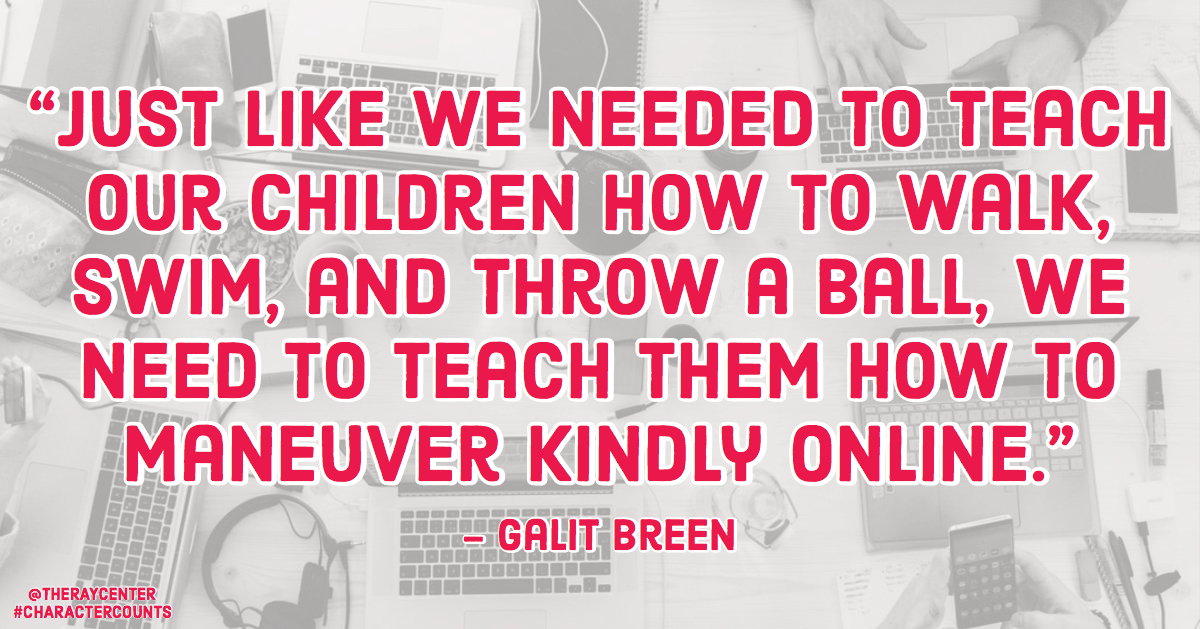
From our guest contributor, Michele Borba.
One of the top questions I’m asked by parents is how to keep children safe online. It’s a legitimate concern. Surveys show that about four out of ten kids have experienced cyber-bullying. What’s more, most of those bullies aren’t predators or even strangers, but real world “friends” they know. I’ve dealt with far too many children who suffer from anxiety and depression after dealing with cold-hearted, intentional online attacks. Make no mistake: the root of bullying is always a lack of empathy, and far too many kids-and adults-are in deficit mode.
While we wring our hands and wonder what to do, we may be missing one of the simplest solutions: teaching kids to be kind. And that goes both online and off. After all, we teach our children to “be nice” in the sandbox and playground, but they also need help in navigating with their newest playground turf: the virtual world. Instead of assuming they understand the “play nice” online rules, we must directly teach those lessons.
The good news is that former educator and mom, Galit Breen shows us how her in must-read, “Kindness Wins: A Simple, No-Nonsense Guide to Teaching Our Kids How to Be Kind Online.” This essential parenting manual makes the persuasive case for teaching our children online decency and it is written with warmth, humor, sage advice and compassion. She points out that becoming social media savvy is a skill that can be taught, and offers ten simple habits to teach kids to be kinder online.
Ten Online Habits to Teach Kids: “Kindness Wins”
Habit 1: Take a breath before you post.
Habit 2: If it’s not kind, don’t post it!
Habit 3: Tell an adult when you see troublesome online behavior.
Habit 4: You’re in charge of your online life.
Habit 5: We don’t talk about other people’s bodies-online or off.
Habit 6: Nothing is private online: everything is sharable.
Habit 7: If you do have something to say make sure it is true, necessary and kind.
Habit 8: Post like everyone is watching.
Habit 9: Ask permission to share.
Habit 10: Kindness wins, always.
Breen also says that directly teaching our children these skills with real examples is always the best way to explain what’s okay to say and do online and what’s not. Of course, the beauty of Breen’s book is that she also shows exactly how to have those important conversations with kids and offers a wealth of practical takeaways. What’s more, the book provides resources for further reading, discussion starters and dozens of practical bulleted takeaways. Kindness Wins also includes two contracts: one to share with peers and one to share with kids.
I strongly recommend you get a copy of Kindness Wins and start teaching your children Breen’s ten habits. Working together is the best way help kids grow up in a kind and caring culture. If we preach the same “kindness” mantra, we really can make a difference on our children’s world.
It’s time we help our children be kind both online and off. As Breen points out, “Just like we needed to teach our children how to walk, swim, and throw a ball, we need to teach them how to maneuver kindly online.”
Lucky for us, Galit Breen has provided a manual to show us the way.
Dr. Michele BorbaMichele Borba is an educational psychologist, parenting expert, TODAY show contributor and author of 22 books including The Big Book of Parenting Solutions: 101 Answers to Your Everyday Challenges and Wildest Worries and UnSelfie: Why Empathetic Kids Succeed in Our All-About-Me World.
Check out: micheleborba.com or follow me on Twitter @micheleborba.
